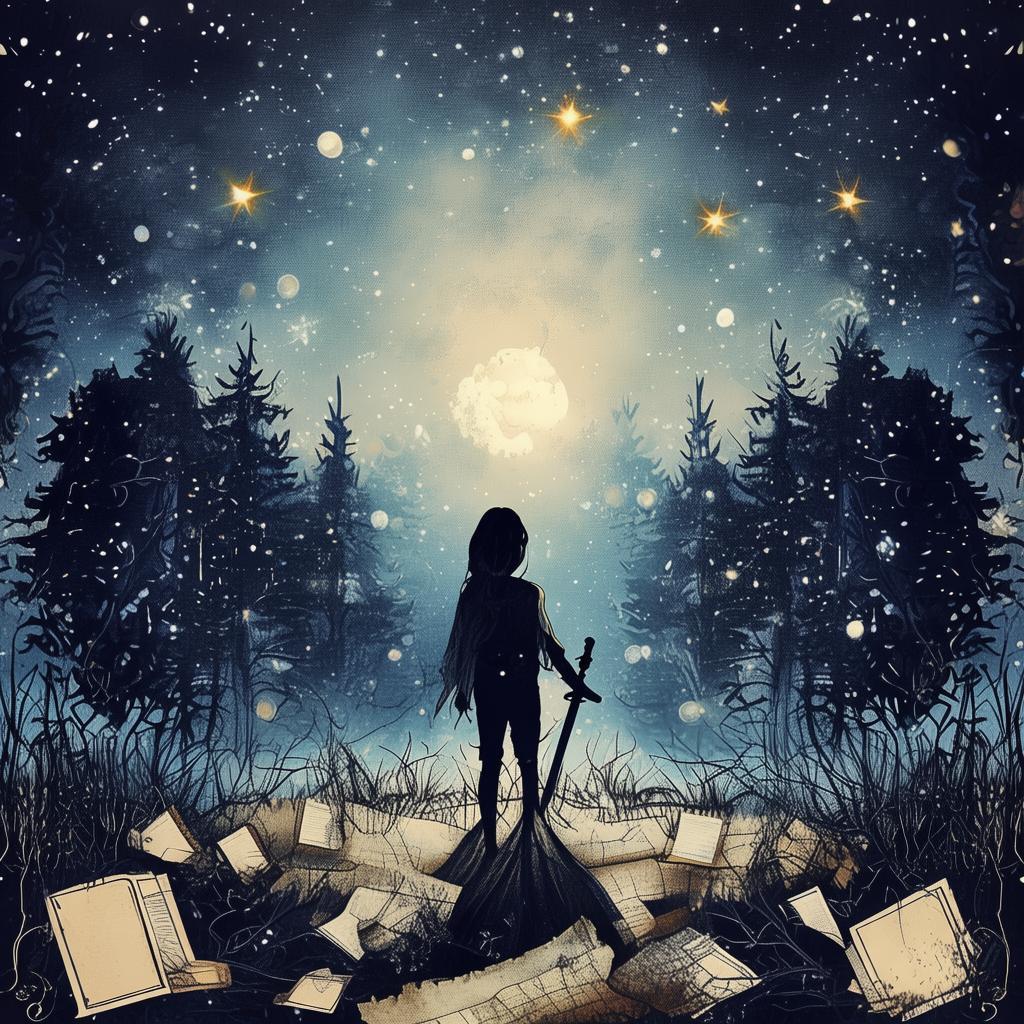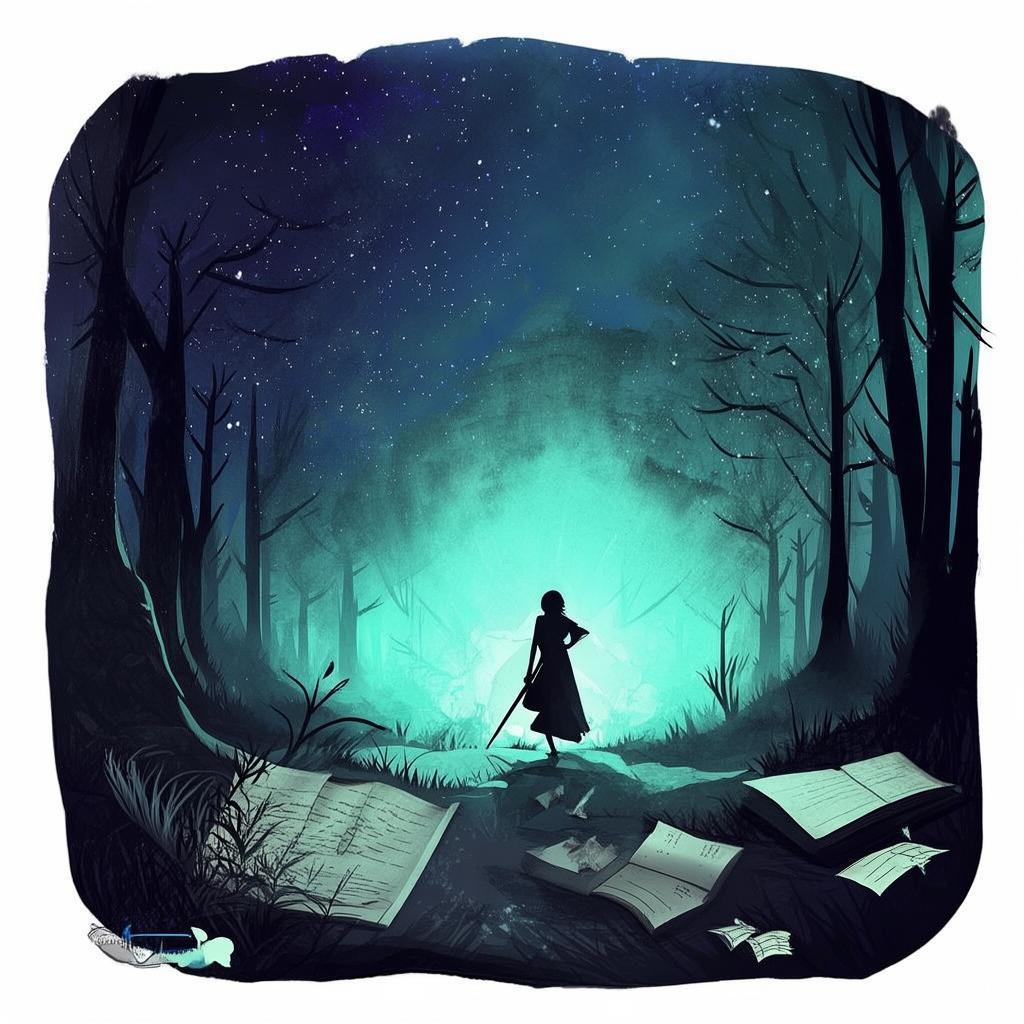The Unraveling of the Mocking Muse
In the heart of The Humorist's Haven, a city where laughter was currency and satire was power, lived a young writer named Moriarty. She was known for her sharp wit and a pen that could cut through the most tangled of comedic knots. Her stories were the talk of the town, but they were also a thorn in the side of the city's humor elite, a group of writers who had long held the reins of the city's comedic culture.
The Humorist's Haven was a place where the laughter was as thick as the air itself. The elite were the ones who wrote the hit comedies, the ones who had the audiences in stitches night after night. They were the ones who controlled the narrative, the ones who knew how to manipulate the audience's emotions for their gain. But Moriarty had other ideas.
She was a revolutionary, a satirist who saw through the façade of the elite's humor and sought to expose their hypocrisies. Her stories were not just for entertainment; they were a weapon, a way to challenge the status quo and force the elite to confront their own insecurities and pretensions.
The Unraveling of the Mocking Muse began with a simple sketch—a portrait of a writer in a grand library, surrounded by books and accolades, but with a twisted smile that belied the happiness of his achievements. The elite were appalled. They saw it as an affront to their dignity, a mockery of their art. But Moriarty had set a spark that would not be easily extinguished.
As the weeks passed, Moriarty's stories grew bolder. She penned a satire of a popular comedy show, highlighting the show's lack of originality and its reliance on tired punchlines. The audience laughed, but the elite were seething. They accused her of destroying the very culture they had created. But Moriarty's response was simple: "Culture is not a religion. It should be questioned, not worshipped."

The revolution began to gather momentum. People from all walks of life began to see the humor in the elite's antics, the satire in their lives. They began to support Moriarty, to cheer her on as she continued to challenge the status quo. The elite, once untouchable, were now on the defensive, their power waning with each new revelation.
One of Moriarty's most daring acts was the publication of a book titled "The Comedy of Errors." It was a collection of stories that exposed the elite's comedic laziness, their reliance on stereotypes, and their lack of genuine creativity. The book became an instant bestseller, and the elite were forced to confront the reality that their humor was outdated and irrelevant.
But Moriarty's revolution was not without its challenges. The elite, feeling threatened, began to retaliate. They spread rumors, tried to discredit her, and even threatened her with violence. But Moriarty stood firm, her resolve unshaken. She knew that the true power lay not in the elite's wealth or influence, but in the hearts and minds of the people.
As the revolution progressed, Moriarty's stories became more personal, more poignant. She began to tackle issues of social justice, of inequality, of the human condition. Her humor was no longer just a weapon; it was a tool for change, a way to make people think, to question, to challenge the world around them.
In the climax of her revolution, Moriarty organized a grand event, a comedy festival that showcased both the elite's humor and her own. The festival was a grand success, with audiences laughing and cheering, but more importantly, they were thinking. They were questioning. They were becoming part of the revolution.
The ending of The Unraveling of the Mocking Muse was not a twist, but a reflection. Moriarty stood on stage, her voice echoing through the hall, and she said, "The revolution is not about destroying the old, but about building the new. It's about creating a world where humor is not just a tool for entertainment, but a tool for change, a tool for understanding, a tool for growth."
The audience erupted in applause, and as the last echo of the laughter faded, Moriarty stepped off the stage, her mission accomplished. The Humorist's Haven had been forever changed, and Moriarty had become the Mocking Muse, the satirist who had sparked a revolution and forever altered the landscape of humor.
✨ Original Statement ✨
All articles published on this website (including but not limited to text, images, videos, and other content) are original or authorized for reposting and are protected by relevant laws. Without the explicit written permission of this website, no individual or organization may copy, modify, repost, or use the content for commercial purposes.
If you need to quote or cooperate, please contact this site for authorization. We reserve the right to pursue legal responsibility for any unauthorized use.
Hereby declared.









